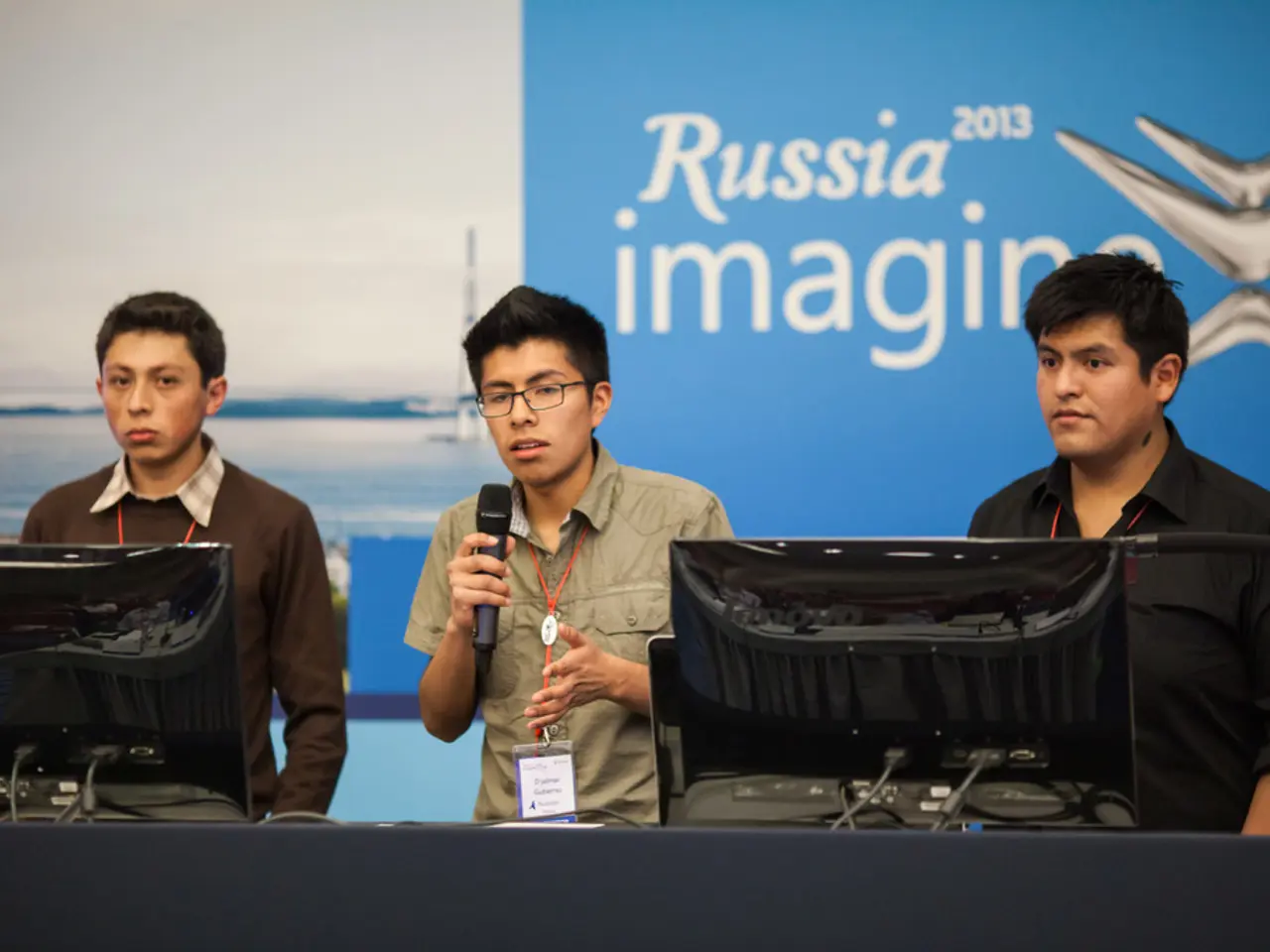AI technology that converts speech to text is aligning with a digital Saudi Arabia
Soniox Makes a Mark in Saudi Arabia's Digital Transformation
Soniox, a speech-to-text platform, is making strides in Saudi Arabia's burgeoning digital landscape. With a focus on voice AI, Soniox offers speech recognition, transcription, and real-time multilingual translation in over 60 languages [1].
In healthcare settings, Soniox's technology is being used notably in emergency rooms, where its real-time AI interpretation helps overcome communication barriers and manage complex medical terminology that human translators might struggle with [1]. This practical, mission-critical use of the platform underscores its potential.
The Saudi market is particularly receptive due to its high smartphone penetration rate and a young population, making it fertile ground for voice-enabled and AI-powered technologies [1]. The accelerated digital adoption during the COVID-19 pandemic, as seen in platforms like Tawakkalna, has further fuelled this trend [1].
Saudi Arabia's Vision 2030 goals align closely with AI and data-related technologies, with 66 of 96 direct and indirect goals focusing on data and AI [1]. The communications and IT sector in the country is worth over $44 billion, representing 4.1% of the country's gross domestic product, and is expanding quickly with strategic investments [1].
Though Soniox does not yet have a physical team presence in the region, there is significant interest from local companies exploring AI transcription and customer service tools, with pilot programs already underway in other countries [1]. The Gulf region’s widespread smartphone use and rapid digital transformation create a promising environment for Soniox’s speech recognition solutions [2].
Soniox's API allows businesses to integrate it without storing any audio or transcripts, ensuring tight data control [1]. The company's commitment to expanding language support makes its technology more inclusive, even in markets where none of the developers speak the local tongue [1].
A notable example of this is the use of Soniox by Simonic's non-tech-savvy mother for building her grocery shopping list [1]. Arabic, being one of the more complex languages for voice AI, presents a challenge and an opportunity for Soniox, as many rural communities in Saudi Arabia speak dialects rich in cultural nuance [1].
Klemen Simonic, the founder and CEO of Soniox, began his career in programming development after high school and worked at the Jozef Stefan Institute in Slovenia. After an internship at Google in 2014, Simonic was courted by both Google and Facebook and ultimately joined Facebook in 2015 to help build speech recognition systems [1].
Soniox's technology has privacy and compliance built in, including SOC 2 Type II certification and HIPAA readiness [1]. The company also offers a new comparison tool that allows developers and businesses to benchmark different speech AI providers using their own voice samples and real-world data [1].
In summary, Soniox is positioned as an emerging AI speech-to-text platform in Saudi Arabia, utilized primarily in healthcare communication and customer service, benefiting from the Kingdom’s strategic push towards AI and digital innovation under Vision 2030. Its usage is expanding, but still at a pilot or exploratory stage without local offices yet [1][2].
- With a focus on artificial intelligence, Soniox offers speech recognition, transcription, and real-time multilingual translation in over 60 languages, making a mark in Saudi Arabia's burgeoning digital landscape.
- The Saudi market, known for its high smartphone penetration rate and a young population, presents a promising environment for voice-enabled and AI-powered technologies like Soniox.
- Saudi Arabia's Vision 2030 goals focus on data and AI, aligning closely with Soniox's technology, and the communications and IT sector in the country is expanding quickly with strategic investments.
- Local companies in Saudi Arabia are expressing significant interest in AI transcription and customer service tools offered by Soniox, with pilot programs already underway in other countries.
- The Gulf region’s widespread smartphone use and rapid digital transformation create a suitable environment for Soniox’s speech recognition solutions, such as building grocery shopping lists even for non-tech-savvy individuals.
- Soniox's API allows businesses to integrate it without storing any audio or transcripts, ensuring tight data control, and the company's commitment to expanding language support makes its technology more inclusive, even in complex language markets like Arabic.
- Soniox's technology has privacy and compliance built in, with certifications like SOC 2 Type II and HIPAA readiness, and a new comparison tool allows developers and businesses to benchmark different speech AI providers using their own voice samples and real-world data.




